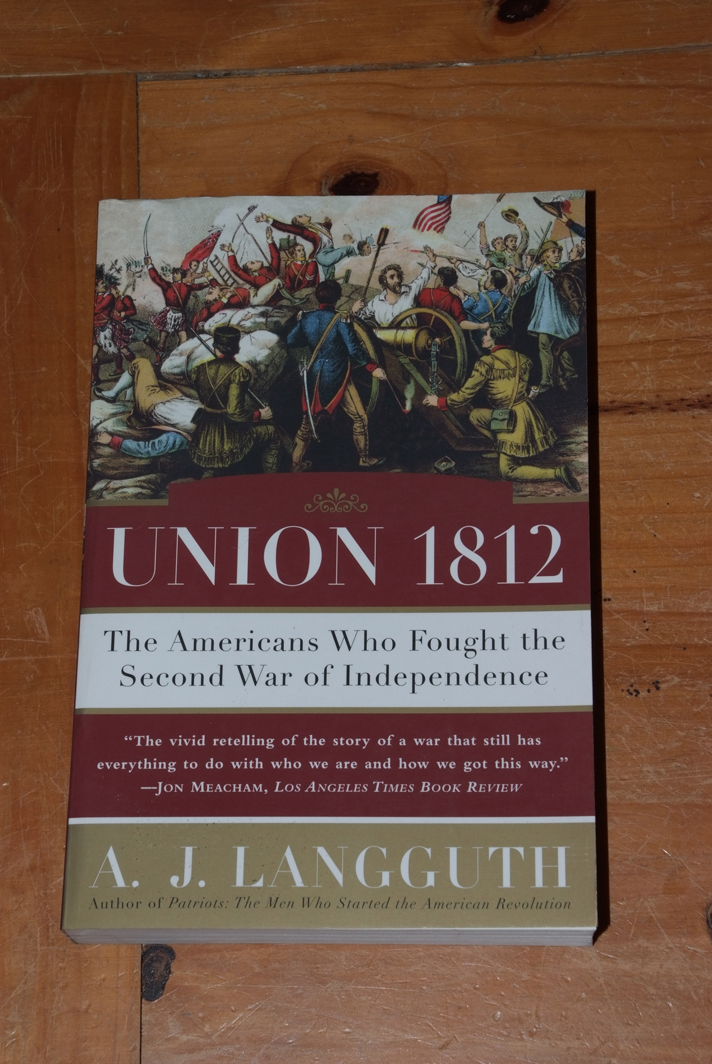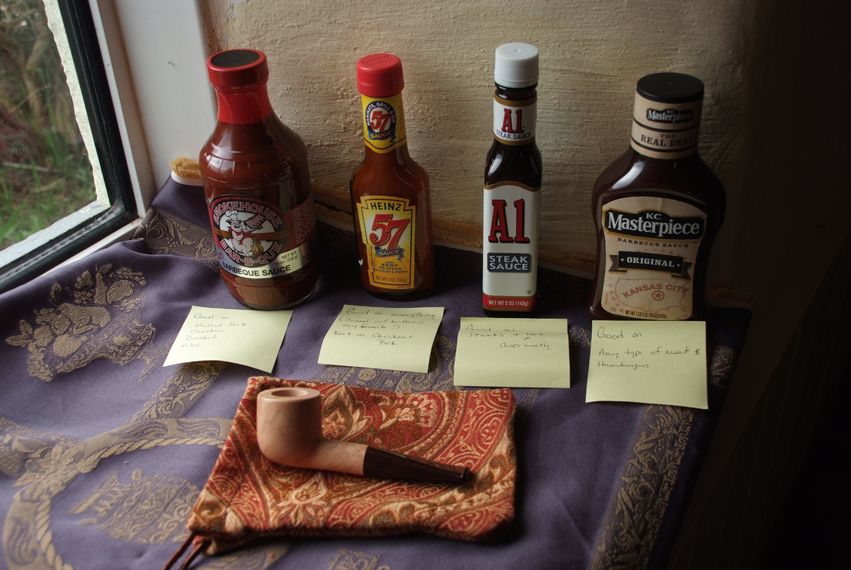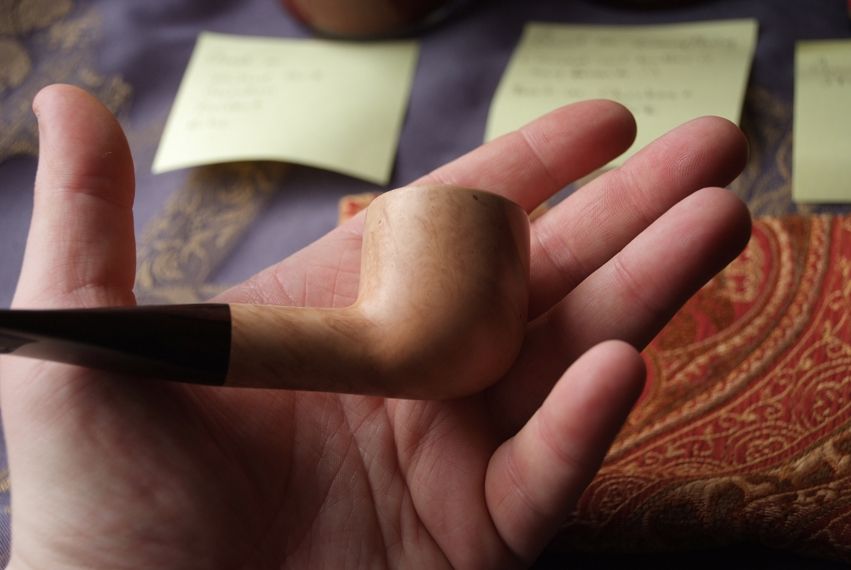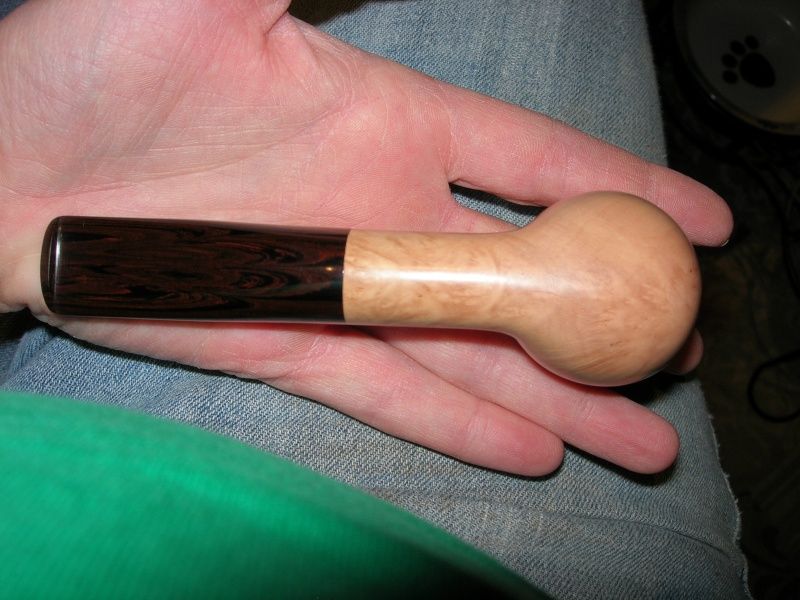You are using an out of date browser. It may not display this or other websites correctly.
You should upgrade or use an alternative browser.
You should upgrade or use an alternative browser.
November Bombing Mission - Toxic Turkey!
- Thread starter Blackhorse
- Start date

Help Support Brothers of Briar:
This site may earn a commission from merchant affiliate
links, including eBay, Amazon, and others.
George Kaplan
Well-known member
- Joined
- Jan 7, 2012
- Messages
- 2,735
- Reaction score
- 2
I'm sure you're safe by now, Greyson.
Or not.
Or not.
Greyson - me lad. Understand that all kennels released the dogs of war some time ago. Some are relatively fast or start from close by. Some are slower or have further to go. Once released they run their course and cannot be 'reined in' - so to speak. Buck up man, show a little grit.
George Kaplan
Well-known member
- Joined
- Jan 7, 2012
- Messages
- 2,735
- Reaction score
- 2
This came up over dinner with friends last night. (the war, not the gift) Everyone knows specific details of the war of 1812, such as the President's wife smuggling George Washington's famous portrait out of the burning whitehouse, and Samuel L. Jackson driving the British from New Orleans, (I may be a bit hazy on that one), but no one seems to have a clear idea of why the war was fought. Did we just not get it right the first time? I'm pretty foggy about this one, and my knowledge of history is a bit above average. Greyson? Any input from "the other side"?Greyson":s3aqxzvr said:A very interesting looking book that no doubt was sent to educate me, as my knowledge of the colonies is admittedly lacking. Very nice, thank you whoever sent it!

Greyson
Well-known member
- Joined
- Aug 3, 2012
- Messages
- 1,006
- Reaction score
- 0
Honestly, I spent so much of my history classes learning which king did what and when I don't think we covered the American revolution at all. I'm sure we must have done at some point, but I certainly didn't know anything about this war of 1812. I could well have never heard of it until this book was gifted to me, I'm not sure. I can tell you about Boadicea and the Roman occupation, or the Saxons and the Tudors, the battle of Hastings, the French campaign of Henry the fifth, Nelson and Napoleon, but not a lot about the colonial wars.
I would guess that its not a rose-tinted approach to history like the Japanese cutting out all references to their atrocities the second world war from history books, more likely just a casualty of my patchy education. The way things are taught over here vary quite a lot, state schools have to rigidly follow the national curriculum, and private schools have a lot more leeway... I had private education and the teachers only taught the bits they liked.
1812.... 1812.... ah! I know why we lost. We clearly made the classic mistake of fighting wars on two fronts. The USA on one side and Xhosa on the other. They did have some very sharp fruit.
I'll come back to you when I've read the book, I'll be able to give a better answer then.
I would guess that its not a rose-tinted approach to history like the Japanese cutting out all references to their atrocities the second world war from history books, more likely just a casualty of my patchy education. The way things are taught over here vary quite a lot, state schools have to rigidly follow the national curriculum, and private schools have a lot more leeway... I had private education and the teachers only taught the bits they liked.
1812.... 1812.... ah! I know why we lost. We clearly made the classic mistake of fighting wars on two fronts. The USA on one side and Xhosa on the other. They did have some very sharp fruit.
I'll come back to you when I've read the book, I'll be able to give a better answer then.

$8.00 ($8.00 / Count)
Nirbelo Roll Your Own Strawberry Flavoured Herbal Raw Mixture, 100% Tobacco Free & Nicotine Free for Quit Smoking, 35 Gram, Pack of 1
NIRBELO USA

$6.99 ($3.50 / Ounce)
Cherry Tobacco Pipe Scented Melt- Maximum Scent Wax Cubes/Melts- 1 Pack -2 Ounces- 6 Cubes
TheCandleDaddy

$13.45 ($12.69 / Ounce)
Peace O' Mind Herbal Blend - Chamomile, Red Rose Petals, Lavender | Natural Caffeine Free Tea & Smoke Blend by Tree Fifty Four | 30 Cups
Tree Fifty Four

$9.89
Loftus International Detective Sherlock Hat & Pipe 2pc Accessory Kit Grey One Size Novelty Item
Blazing Dealz! LLC

$19.95 ($2.22 / Ounce)
Lulu Candles | Jasmine, Oud & Sandalwood | Luxury Scented Soy Jar Candle | Hand Poured in The USA | Highly Scented & Long Lasting (9 Oz.)
Lulucandles

$2.55
$3.50
Audrey Style Vintage Extendable Cigarette Holder in Black Inspired by BAT's
Taiyuanyinlezhuisuidianzishangwuyouxiangongsi

$33.95 ($33.95 / Count)
Fashion mini Churchwarden Briar Tobacco Pipe "Bent" Style Wood HandcraftedPipe Wooden Tobacco Smoking Pipe Briar (mini Churchwarden)
Fashion Pipes

$8.99 ($8.90 / Fl Oz)
P&J Trading - Sweet Tobacco Scented Oil 30ml - Fragrance Oil for Candle Making, Soap Making, Diffuser Oil
P and J Trading

$4.99 ($1.25 / Ounce)
50Pcs Smoking Pipe Cleaners Blend Cotton Rods Tobacco Smoke Mouthpiece Convenient Disposable Cleaning Tool Smoking Accessories(2PACKs)
createworld001

$4.99 ($14.68 / Fl Oz)
P&J Fragrance Oil Sweet Tobacco 10ml - Candle Scents, Soap Making, Diffuser Oil, Fresh Scents
P and J Trading

$6.99 ($19.97 / Ounce)
Herbal Smoking Blend - Drag (Blend of Exotic Flowers and Herbs) 10grams (0.35oz) (Vibe)
DragStore

$8.99 ($8.99 / Count)
4 Inch Ceramic Tile - Whiskey Decanter and glass with Tobacco Pipe Photography - Still Life
3dRose LLC
George Kaplan
Well-known member
- Joined
- Jan 7, 2012
- Messages
- 2,735
- Reaction score
- 2
Very short answer:George Kaplan":ph9uxihd said:This came up over dinner with friends last night. (the war, not the gift) Everyone knows specific details of the war of 1812, such as the President's wife smuggling George Washington's famous portrait out of the burning whitehouse, and Samuel L. Jackson driving the British from New Orleans, (I may be a bit hazy on that one), but no one seems to have a clear idea of why the war was fought. Did we just not get it right the first time? I'm pretty foggy about this one, and my knowledge of history is a bit above average. Greyson? Any input from "the other side"?Greyson":ph9uxihd said:A very interesting looking book that no doubt was sent to educate me, as my knowledge of the colonies is admittedly lacking. Very nice, thank you whoever sent it!

Other than talking about the fact the the British were impressing (kidnapping) American sailors to sail on British warships (which Americans always mention), we mostly wanted an excuse to expand into Canada and then the Caribbean. Pushed by the original "War Hawks" (led by Henry Clay & John C. Calhoun). We started rearming over a year before declaring war; that led to Eli Whitney applying the concept of interchangable parts to muskets, which then spread throughout US industry, kicking the industrial revolution up a notch
Greyson
Well-known member
- Joined
- Aug 3, 2012
- Messages
- 1,006
- Reaction score
- 0
Ah, Agincourt was very interesting actually, a really ragged English army, starving and outnumbered should have been obliterated by the French.George Kaplan":0ame4qzz said:
The froggies were so eager to wipe us out they charged with heavy horse way before the appropriate time (before skirmishers, crossbowmen and men at arms had been used) so they churned the wet ground to impassable mud attacking the Welsh longbowmen but were unable to find a way through the pike defences they had put up and were cut to pieces. Seeing the cavalry fail, Charles d'Albret ordered the men at arms to advance, along with footknights. Eyewitness accounts have their attack being disrupted and broken by the wounded and panicked horses of the charge, and those that made it across the 300 yard mud filled battlefield could 'scarcely lift their weapons' to fight the English. When Henry heard that his brother had been injured, he fought he way through to where he lay and stood guard over him until he could be pulled back from the fighting, during which he took an axe blow to the head which took off a part of his helm's crown. This was back when our royalty was worth a damn of course. After defeating the main body of the French army, two things happened. First, Henry was finally told that as battle began, a local French knight called d'Agincourt and a small number of his men had led a successful sneak attack on the English baggage train, slaughtering the women and children who were with it, a gross violation of the rules of war. As he was being told this, the French rearguard formed up and appeared to be preparing to attack. Its unclear if the order came out of vengeance of the baggage train, or from concern that captive French might escape and rearm themselves in another attack, but Henry ordered the execution of all captured French, bar one or two nobles. The English knights refused out of honour, the men at arms refused out of the loss of their ransoms, but the archers had no code of honour and no prisoners of their own, so they murdered them with their hatchets. It is this point that historians often point to as the first beginnings of an English middle class, the archers being from peasant stock but educated, skilled, and cut out of the 'nobility'. Anyhow, when the French rear guard saw their leaders and thousands of kin being butchered, they broke and ran from the field.
History can be fun!
idbowman
Well-known member
- Joined
- Dec 19, 2011
- Messages
- 2,064
- Reaction score
- 20
Greyson":cuk5elwb said:Ah, Agincourt was very interesting actually, a really ragged English army, starving and outnumbered should have been obliterated by the French.George Kaplan":cuk5elwb said:
The froggies were so eager to wipe us out they charged with heavy horse way before the appropriate time (before skirmishers, crossbowmen and men at arms had been used) so they churned the wet ground to impassable mud attacking the Welsh longbowmen but were unable to find a way through the pike defences they had put up and were cut to pieces. Seeing the cavalry fail, Charles d'Albret ordered the men at arms to advance, along with footknights. Eyewitness accounts have their attack being disrupted and broken by the wounded and panicked horses of the charge, and those that made it across the 300 yard mud filled battlefield could 'scarcely lift their weapons' to fight the English. When Henry heard that his brother had been injured, he fought he way through to where he lay and stood guard over him until he could be pulled back from the fighting, during which he took an axe blow to the head which took off a part of his helm's crown. This was back when our royalty was worth a damn of course. After defeating the main body of the French army, two things happened. First, Henry was finally told that as battle began, a local French knight called d'Agincourt and a small number of his men had led a successful sneak attack on the English baggage train, slaughtering the women and children who were with it, a gross violation of the rules of war. As he was being told this, the French rearguard formed up and appeared to be preparing to attack. Its unclear if the order came out of vengeance of the baggage train, or from concern that captive French might escape and rearm themselves in another attack, but Henry ordered the execution of all captured French, bar one or two nobles. The English knights refused out of honour, the men at arms refused out of the loss of their ransoms, but the archers had no code of honour and no prisoners of their own, so they murdered them with their hatchets. It is this point that historians often point to as the first beginnings of an English middle class, the archers being from peasant stock but educated, skilled, and cut out of the 'nobility'. Anyhow, when the French rear guard saw their leaders and thousands of kin being butchered, they broke and ran from the field.
History can be fun!
Fantastic post. The Hundred Years War is actually central to the area I'm specializing in, although waaaaay to the periphery of my actual thesis work. I've always though Agincourt was one of the most entertaining battles to study in the entire period. What's entertaining is to read a handful of academic accounts of the battle, and then compare 'em to Shakespeare's version.
Greyson
Well-known member
- Joined
- Aug 3, 2012
- Messages
- 1,006
- Reaction score
- 0
Aye. I think its quite interesting how much Shakespeare got right, I cant imagine there were that many reference materials available to him, even modern day scholars have very few accounts. Sometimes I forget though, and think that the French army was led by the Dauphin, and the war was fought over tennis balls.
Edit: Oh btw ID, I don't know if its relevant to your studies, but I have an uncle who specialises in translating previously undiscovered books in old English and old French to modern English, I think he's just released a book of medieval poetry. He'd be thrilled if you bought a copy, along with me that means he'd have sold... well, two.
Double edit: Oh that's classic. His latest book is by him (Michael Newth) and 'Anonymous Author'. The other guy didn't even want to be named!! No, seriously Mike, you take all the credit. Really. no its fine, just don't mention me ok? HAHAHAHA!
Edit: Oh btw ID, I don't know if its relevant to your studies, but I have an uncle who specialises in translating previously undiscovered books in old English and old French to modern English, I think he's just released a book of medieval poetry. He'd be thrilled if you bought a copy, along with me that means he'd have sold... well, two.
Double edit: Oh that's classic. His latest book is by him (Michael Newth) and 'Anonymous Author'. The other guy didn't even want to be named!! No, seriously Mike, you take all the credit. Really. no its fine, just don't mention me ok? HAHAHAHA!
idbowman
Well-known member
- Joined
- Dec 19, 2011
- Messages
- 2,064
- Reaction score
- 20
Not really related to my studies, other than the larger-scope of being part of the Middle Ages...which is not to say that I find it uninteresting or worth taking a look at, just that it's not specifically relevant to my current focus. Specifically, I'm working on comparing John of Gaunt's, Richard II's, and Henry IV's various approaches to building/maintaining political alliances with the English episcopate, and how the leanings of the episcopate is a traceable thread throughout the period of 1397-1405, and relevant to the "Revolution" of 1399.
Needless to say, the group of people which that interests is, to be generous, limited.
Needless to say, the group of people which that interests is, to be generous, limited.
Raises hand.idbowman":0zfxuuu8 said:Not really related to my studies, other than the larger-scope of being part of the Middle Ages...which is not to say that I find it uninteresting or worth taking a look at, just that it's not specifically relevant to my current focus. Specifically, I'm working on comparing John of Gaunt's, Richard II's, and Henry IV's various approaches to building/maintaining political alliances with the English episcopate, and how the leanings of the episcopate is a traceable thread throughout the period of 1397-1405, and relevant to the "Revolution" of 1399.
Needless to say, the group of people which that interests is, to be generous, limited.
BTW, I know it's 200 years before your period, but did you read John Guy's new bio of Becket?
idbowman
Well-known member
- Joined
- Dec 19, 2011
- Messages
- 2,064
- Reaction score
- 20
I'm not kidding you when I say it's been sitting on my desk for two weeks and I haven't had the time to think about opening it (trying to get one more thesis chapter submitted by the end of the year). I haven't read any reviews, either, but I was surprised when I saw that he'd written a book on Becket - unless I'm off, doesn't most of his work involve the Tudors?
Yeah, all six books he lists are Tudor/Mary Queen of Scots. Still, there is a connection between Henry II/VIII in their relationship with the Church, esp through Becket's tomb. He really does not like Henry II!idbowman":tqzij8m1 said:I'm not kidding you when I say it's been sitting on my desk for two weeks and I haven't had the time to think about opening it (trying to get one more thesis chapter submitted by the end of the year). I haven't read any reviews, either, but I was surprised when I saw that he'd written a book on Becket - unless I'm off, doesn't most of his work involve the Tudors?
I look forward to hearing more about your diss., esp. John of Gaunt's interactions, considering his involvement with Wycliffe and all the accusations of Lollardry
Yeah! It's like a line from 'The Maltese Falcon' (in a way)...Bogie finishes a workman-like job of bitch slapping Joel Cairo and snarls, and ''When you're slapped you'll take it and you'll like it.''
That being said you might as well move the telly out to the bunker and put on your ''Property of the Bob Bombers'' t-shirt.
That being said you might as well move the telly out to the bunker and put on your ''Property of the Bob Bombers'' t-shirt.
Greyson
Well-known member
- Joined
- Aug 3, 2012
- Messages
- 1,006
- Reaction score
- 0
It's the mission that wouldn't die... blissfully going about my business in a nice warm sense of security and BOOM, I'm once again turned into red mist. Thank god for the NHS or my medical bills would have bankrupted me by now.
Wait, this isn't blood, its BBQ sauce! Oh no, its both.



This superb pipe and awesome bombing is courtesy of our very own Scottie, she said that she wanted to get this out for the November bombing but had to put it on the back burner due to illness. It was carved by her own fair hand and she was kind enough to let me have input on the finish - and asked me if I wanted any world famous BBQ sauce to go with it (I thought that was an odd option on a pipe, but it turned out well when she added four bottles accompanying the bomb with idiot proof instructions). I'm looking forward to trying both pipe and sauces!
I really am very touched by her generosity, having somebody go to this much trouble on your behalf is very humbling, thank you so much Scottie. I honestly wanted to buy one of your pipes in my gradual progress towards supporting and collecting from the BoB pipe carvers, and looking at the quality of this pipe up close I know I'd not regret it! Thank you again, it means a lot to me. Beautiful pipe.
Here's some better pictures of the pipe she took for up close details:







Wait, this isn't blood, its BBQ sauce! Oh no, its both.



This superb pipe and awesome bombing is courtesy of our very own Scottie, she said that she wanted to get this out for the November bombing but had to put it on the back burner due to illness. It was carved by her own fair hand and she was kind enough to let me have input on the finish - and asked me if I wanted any world famous BBQ sauce to go with it (I thought that was an odd option on a pipe, but it turned out well when she added four bottles accompanying the bomb with idiot proof instructions). I'm looking forward to trying both pipe and sauces!
I really am very touched by her generosity, having somebody go to this much trouble on your behalf is very humbling, thank you so much Scottie. I honestly wanted to buy one of your pipes in my gradual progress towards supporting and collecting from the BoB pipe carvers, and looking at the quality of this pipe up close I know I'd not regret it! Thank you again, it means a lot to me. Beautiful pipe.
Here's some better pictures of the pipe she took for up close details:







DrumsAndBeer
Well-known member
- Joined
- Apr 4, 2012
- Messages
- 6,603
- Reaction score
- 10
Great pipe. Very classy. Excellent work Scottie!. :cheers:
Lucky you, Greyson.
Lucky you, Greyson.









![[4PC Bundle] 1/2-Inch Copper Pipe Cleaner Set for Power Drill, 1/2” Tube Cleaning Brush, Cleans Copper Pipes Tubes and Fittings for Soldering, w/ Stainless-Steel Wire Bristles & 1/4” Shank…](https://m.media-amazon.com/images/I/412s2hl0igL._SL500_.jpg)



















